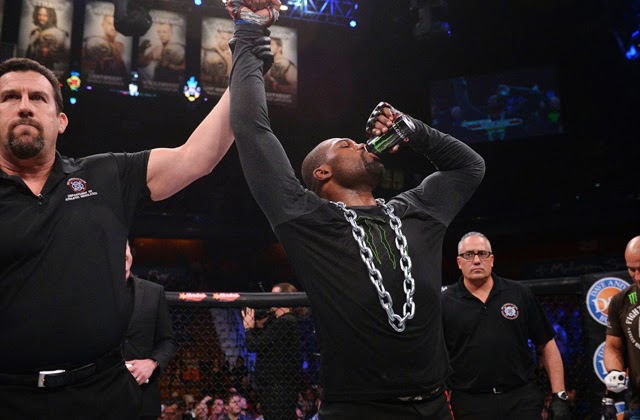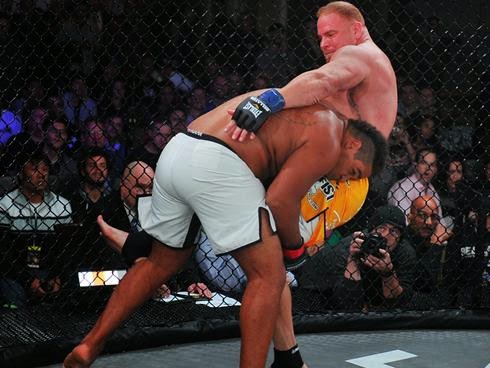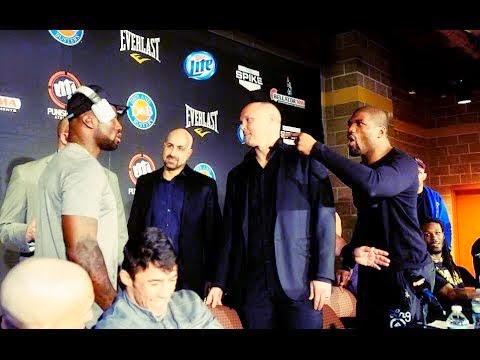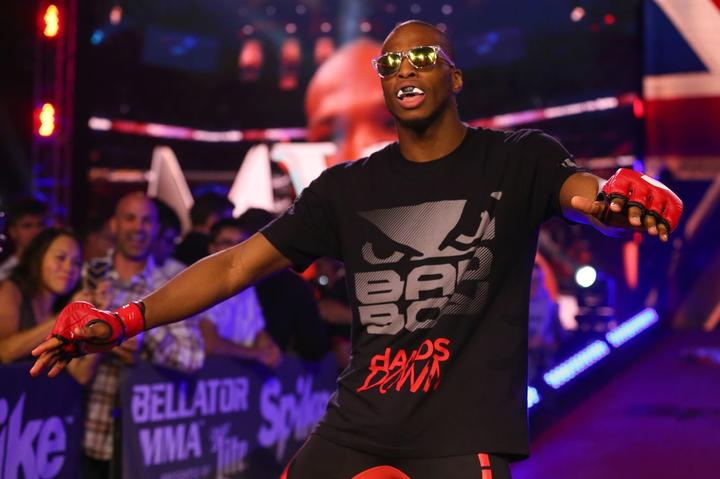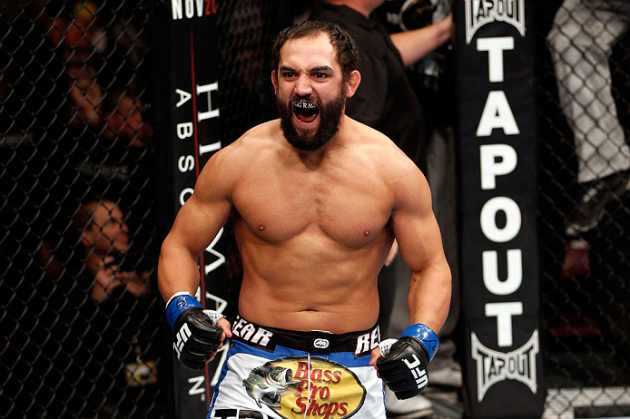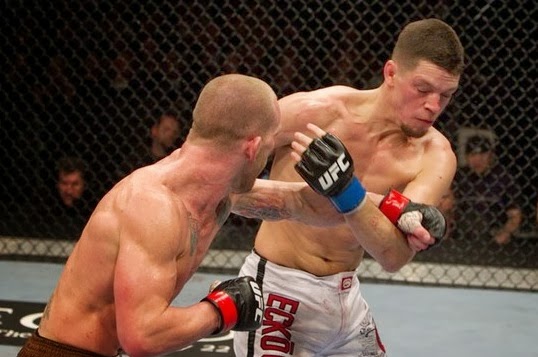The first part of this piece focused on Bellator‘s tournament model, and the way that a return to that structure as a focal point can avoid some of the issues that the promotion has had with regard to creating stars, utilizing them properly, and ultimately allowing them to move on. By eliminating title defenses and title contenders, big fights can be made without regard to a championship hierarchy, and the tournament can remain the proving ground for each division’s elite fighters. In the second part of the piece, I’ll explore Bellator’s role as a live sports property within the Viacom portfolio, and how embracing the 21st Century entertainment landscape is preferable to clinging to outdated models of selling pay-per-view events.
Embrace The Viacom Partnership: Live Streaming > PPV
The current television landscape is much different from that of a decade ago, and continues to change. The proliferation of DVRs and on demand streaming services like Netlix, Amazon, and Hulu has exerted pressure on networks and other television providers to deliver viewers to advertisers in real time, and that has caused an explosion of demand for sports content. Bellator is one such program, and despite the so-called “oversaturation” of MMA content, its weekly fight cards still garner respectable ratings.
That being said, the size of the audience does fluctuate based on the amount of star power on a given card. “Rampage” Jackson is still a fighter that can draw close to a million viewers, and the promotion’s best ever rating was the stacked Bellator 106 event, which peaked at 1.4 million viewers. But whatever the struggles that Bellator may have with making its weekly show destination programming for fans on Friday night, that pales in comparison to trying to convince fans that its fight cards are events worth paying for.
That’s not a knock on the quality of the fights, as Bellator has been known to deliver exciting contests. But at a time when even the well-established UFC finds its offerings delivering disappointing sub-400,000 buyrates, a straightforward “good card” is not enough to convince the casual fans to part with their hard-earned money. Even if the promotion were to “stack” its cards with as many stars as possible, that would still leave the cupboards bare with regard to building viewership for its Friday night live events, which in the long run, should be considered extremely valuable for Spike TV and Viacom.
Even World Wrestling Entertainment, which helped to build the PPV platform, has recognized the limitations of that approach, and instead gone all-in on a dual strategy of pursuing high rights fees comparable with live sports, as well as developing its WWE Network streaming channel. In lieu of attempting to do a hard sell on monthly events, the company now tries to get fans to sign up for its $10/month subscription service, which delivers live and on-demand content. Given this reality, Bellator and Viacom absolutely should be developing a streaming app. Granted, Bellator doesn’t have the extensive archive of content that WWE has, but what it does have is the ability to leverage Viacom platforms, both on television and online. Trying to convince fans that a fight card that isn’t substantially better than a free fight card is worth $50 is a tough sell, but convincing fans to pay $8 for live and on-demand access to all preliminary and main cards, as well as other original content produced in conjunction with Viacom? Well, that sounds like a better value proposition. And that becomes an even better proposition when you consider the next suggestion.
Make Heavyweight and Light Heavyweight Tournaments Online Attractions
Let’s face it: Bellator may have delivered some really good fights over the years, but the weakest link has always been at heavyweight, where the division’s fights could turn into 15-minute slopfests that drag down the quality and entertainment level of a card substantially. However, abolishing the division is too drastic of a step. The promotion still has an interest in maintaining a heavyweight roster and promoting heavyweight fights. Similar arguments can be made at 205, where the roster lacks depth beyond the handful of established names.
That isn’t to say that these divisions aren’t good for highlight-reel knockouts. Luckily, Bellator has proven adept at both summarizing fight outcomes in clip format and slotting in full fights recorded earlier where appropriate. This would be sufficient for the Heavyweight and Light Heavyweight tournaments. If a fight ends quickly and is exciting, they’ll squeeze the fight in. If not, they’ll just show the clips and direct fans to the replay online or via the streaming app. The finals, of course, could air on TV, and they’ll just have to take their chances with those.
As for fighters like Rampage, “King Mo” Lawal, Tito Ortiz, Cheick Kongo, Emanuel Newton, and others? Non-tournament bouts involving them could still be booked sufficiently to be deserving of main card showcases. And even if they deign to request inclusion in subsequent seasons’ tournaments, each one’s respective star power is capable of not only drawing attention to their fights on the streaming platform, but the segments where their fights are being summarized or re-broadcast could feature them giving commentary or otherwise promoting the outcomes of the fights, win or lose. Tito’s infamous cavalcade of excuses for defeat is just as entertaining if a fight is presented in clip of highlight format, as are Rampage and King Mo’s post-win gloating speeches and trash talk for future opponents.
The positive spin, of course, is that preliminary cards will now become a little bit more meaningful. Whether or not they’d become appointment viewing would remain to be seen, but ensuring that the segments devoted to those divisions’ tournaments on the live broadcasts are mercifully short would minimize the negative effects of bad fights. And while it may hurt individual sponsorships and the like for heavyweight and light heavyweight tournament fighters, the attendant increase in sponsorships for the cards as a whole, if properly distributed throughout the roster, could buttress the tournament winnings the fighters involved in those division’s tournaments. Plus it would provide fighters with the incentive to deliver the kinds of finishes that would get themselves prominently featured on a card’s highlight reel. Remember, with this new approach to on-demand streaming, there are no “dark matches,” but all that varies is the size of the spotlight.
The fundamental problem with Bellator pursuing a pay-per-view-based strategy is that it warps every decision the promotion makes. To sell PPVs, you need to distinguish the events from free ones, be it through making certain stars PPV-exclusive, or holding back fights in order to feature them on paid events. Time has to be taken away from promoting the core talent and the fights that take place from week to week, the fights that attract the core fans to the promotion, and which play a larger role in keeping them loyal. In Viacom, Bellator has a broadcast partner that is committed to a consistent programming schedule, with a slate of television networks that can increase the visibility of its contracted talent across multiple demographics. In its tournaments, Bellator has a built-in infrastructure for transforming unknown prospects into respected talents. There’s an elegance and economy to tournament matchmaking, as long as the tournament itself is treated as more than an afterthought. Where the Bellator 120 PPV is concerned, that is definitely the case. And when your promotion’s biggest selling point is being ignored when you sell your first PPV, that’s the kind of mistake that will take a long time to overcome. Bellator has made many mistakes heading into this event. Let’s hope it realizes the error of its ways before the damage is irreparable.
**********

Bellator 120: Rampage vs. King Mo (formerly Bellator 120: Alvarez vs. Chandler III) takes place on May 17, 2014 at The Landers Center in Memphis, Tennessee.
Click the stars to rate how good you think Bellator 120 will be.


